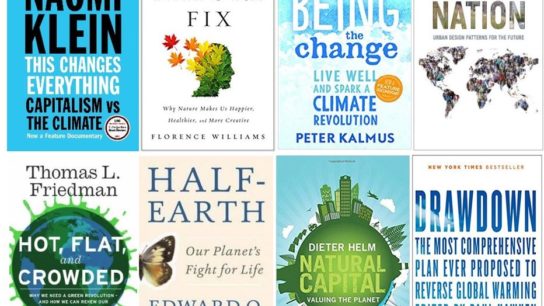The cosmetics industry has seen its share of ethical questioning over the years. Given issues such as the use of unnatural substances and chemicals, animal testing practices, and little warning about potential health concerns, it is no surprise that fewer people are wearing makeup these days. However, people should not feel the need to drop their hobbies, interests, and lifestyles just to stay safe and make the planet cleaner. Instead, the average cosmetics consumer needs to understand the environmental and health impacts of the industry, so they can make more informed choices about the brands and products they choose.
—
Makeup has lost its appeal in recent years for various reasons. While about 39% of women wore makeup in 2019, the cosmetic industry is experiencing a downward trend in popularity. Nowadays, people are opting for a more natural look and are generally using less makeup than before. Others have started to dive deeper into some of the environmental and health issues often associated with the cosmetic industry.
In the past, the industry has been in hot water in terms of ethical practices, worker conditions, animal experimentation, and more. But as our world shifts toward a more sustainable mindset and people are more focused on their health, it is essential to know what the impacts of the industry really are, and how its popularity could continue to damage the planet and people’s overall well-being.
We take a closer look at the environmental and health impacts of the cosmetic industry, and what we can do to make a positive difference even if you choose to wear makeup each day.
The Problems With Traditional Makeup
If you wear makeup regularly, start by researching the brands and companies you use every day. Some cosmetic brands have made important steps toward becoming greener and reducing their impact on the environment. Among the most sustainable beauty brands today are REN, Aveda, Lush, Herbivore, and Giorgio Armani.
If the cosmetic brands you use are not promoting sustainability and are not openly talking about their ethical efforts, you might want to think twice before buying them. Meanwhile, some brands will go above and beyond to appear “natural” and sustainable. In most cases, however, it is nothing more than a creative marketing technique, also known as greenwashing. Doing your research is essential.
Common issues with traditional makeup include waste, product contamination, and harmful ingredients. Not only can these issues impact the planet, but they can also be detrimental to your well-being, causing everything from skin irritation to more serious health issues. For example, some cosmetic companies still use formaldehyde in their products, which is a widely-known carcinogen.
You should also check the expiration dates of all of your cosmetics. Expired makeup can cause skin problems, and might even irritate your eyes – which can become dangerous, especially if you recently had something like laser eye (LASIK) surgery since the area is typically sensitive to certain chemicals and substances.
You might also like: How to Live a More Sustainable Life in 2023
Chaos in the Cosmetic Industry
You might think that there would be regulations in place to keep the cosmetic industry in check. In the US, for example, the Food and Drugs Administration (FDA) cannot recall cosmetics for product contamination. This allows the cosmetic industry to get away with quite a bit and continue to move forward even if it has to do damage control from time to time.
It is not all chaos, of course. The FDA does require that all cosmetics must be appropriately managed and labeled. They cannot be adulterated and must be safe for consumer use before they can leave a manufacturing facility.
However, every industry makes mistakes. While you might hear about recalls of everything from food to medications, not often you will hear of cosmetics recalls. Essentially, every time you apply a cosmetic product, you are taking a risk.
While that does not mean you should stop wearing makeup or even constantly question whether your favorite products are contaminated, it is still important that do your research on the manufacturing practices and learn how to better understand their ingredients, where they come from, and how they are handled throughout each step of production.
You might also like: Shark Liver Oil: The Beauty Industry’s Secret Ingredient
How Poor Environmental Practices Can Lead to Poor Health
While we touched on some of the cosmetic companies making sustainable efforts, there are plenty of makeup brands that are not following suit. Unfortunately, things like excessive packaging, plastic pollution, and unsustainable resource consumption are huge problems within the cosmetic industry that have devastating impacts on the environment. Beauty packaging alone amounts to 120 billion units each year.
These poor environmental practices can increase the risk of issues like climate change – and, as a result, more natural disasters and extreme weather events. However, they can also have a negative impact on your well-being. The more emissions we produce from waste, the more long-term health issues we will start to see. Some of the more serious conditions likely to occur include asthma, birth defects, infectious and cardiovascular diseases, and even cancer.
Plastics do not break down, and the microplastics created from cosmetic waste can wreak havoc on the planet and the well-being of every human residing here. They often contain toxic chemicals and the more make their way into landfills and oceans, the harder it gets to avoid the repercussions.
Whether you love wearing makeup, you do it occasionally, or you have opted to be more natural in your beauty routine, it is still important to know how the cosmetic industry continues to impact the environment and human health. The more people educate themselves on these issues, the greater the demand will be for positive, healthy changes within the industry.
This story is funded by readers like you
Our non-profit newsroom provides climate coverage free of charge and advertising. Your one-off or monthly donations play a crucial role in supporting our operations, expanding our reach, and maintaining our editorial independence.
About EO | Mission Statement | Impact & Reach | Write for us


















